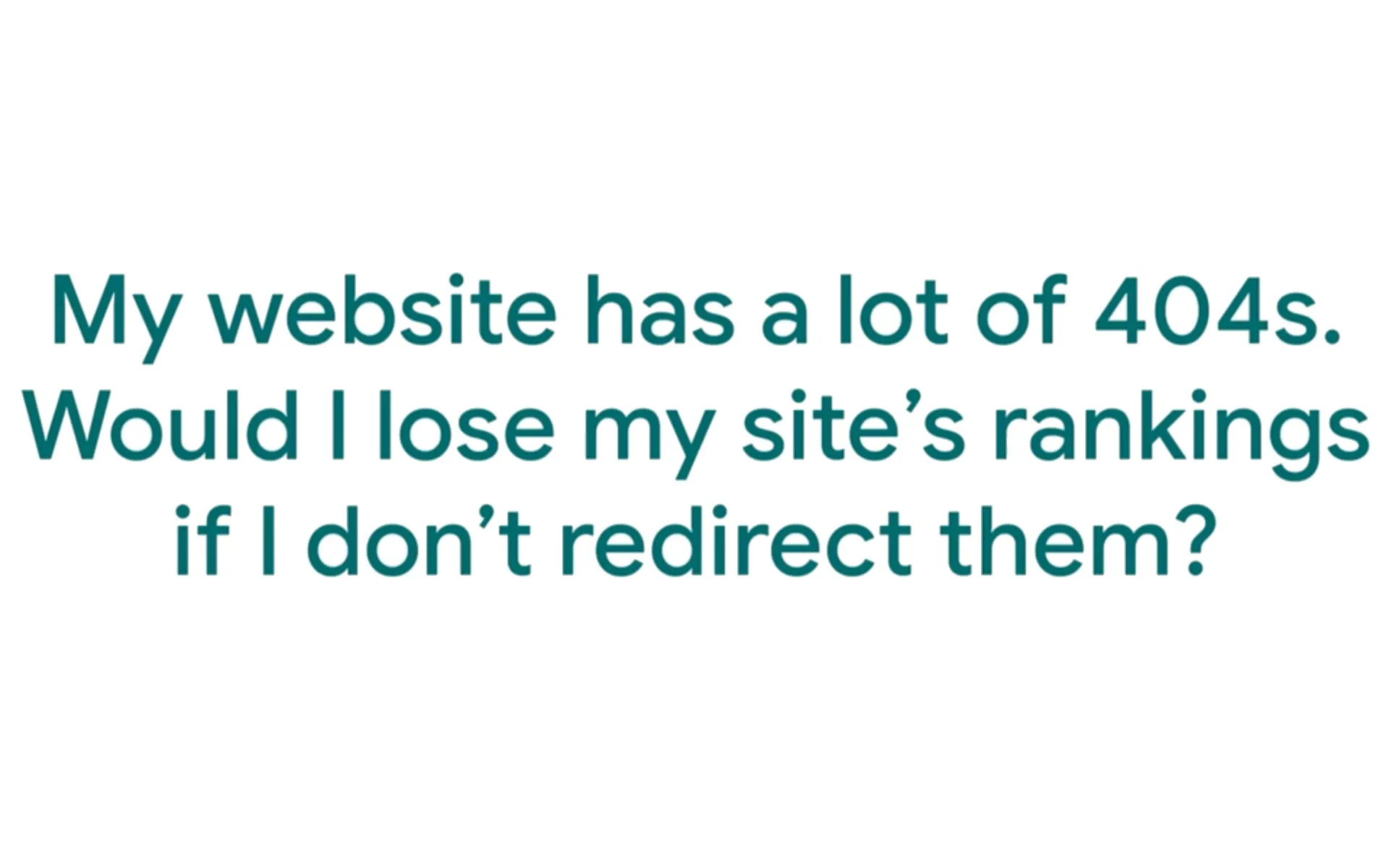404 Errors don't hurt rankings, says Google Search Relations Team
August 2024 Google SEO office hours clarifies 404 impact, addresses indexing and international targeting concerns.

Google this week held its monthly Search Engine Optimization (SEO) office hours session, addressing a wide range of questions from website owners and digital marketers. The session, led by Google's Search Relations team members John Mueller and Martin Splitt, covered topics including indexing challenges, international targeting, technical optimizations, and the impact of various SEO practices on search rankings.
According to the transcript released by Google, the session began with a question about indexing disparities between English and Swahili content on multilingual websites. Mueller explained that while Google generally treats content similarly regardless of language, proper interlinking between language versions is crucial for effective indexing. He recommended cross-linking various language versions and implementing hreflang tags to improve discovery and indexing of localized content.
The discussion then moved to the potential impact of using nofollow and noindex tags on a website's perceived quality. Martin Splitt clarified that the use of these tags does not signal low-quality content to Google's systems. Instead, they simply indicate that the site owner does not wish to be associated with certain links or have specific pages indexed. Splitt emphasized that there are legitimate reasons for using these tags, such as managing user-generated content or controlling indexation of certain pages.
A common concern among website owners is the impact of 404 errors on search rankings. Mueller addressed this issue, stating that 404 errors do not affect the rankings of other pages on a site. He advised against blindly redirecting deleted pages to similar content or homepages, as this can lead to poor user experiences. Instead, Mueller recommended creating informative 404 pages and only implementing redirects when there is a genuine replacement for the deleted content.
The session also touched on the use of Content Delivery Networks (CDNs) for serving images and its potential impact on search appearance. Splitt explained that while the response speed of a CDN does not directly determine whether an image appears in search results, faster-loading images can improve user experience. He noted that some CDNs offer additional benefits, such as dynamic resizing and compression optimization, which can be advantageous for both users and search engines.
International targeting was another key topic discussed during the office hours. Mueller addressed a question about targeting the U.S. market from a France-based online shop, explaining that the geotargeting setting in Search Console is no longer available. He suggested considering the use of generic top-level domains (like .com) instead of country-specific ones (like .fr) for broader international reach. Mueller also emphasized the importance of following Google's guidelines for international websites and considering the use of Merchant Center for e-commerce sites.
The issue of duplicate content across different mediums was also addressed. Splitt clarified that creating a YouTube video and then publishing the same content as text on a webpage would not be flagged as duplicate content. He explained that since one is video and the other is text, they are considered unique content formats. Splitt even encouraged this practice, noting that it can cater to different user preferences and accessibility needs.
Several technical SEO questions were also addressed during the session. These included:
- The impact of UTM parameters on backlink value (no negative impact, but canonicalization is recommended)
- Ensuring login pages appear in sitelinks for Software as a Service (SaaS) companies (keep login pages indexable and accessible)
- The SEO impact of unanswered blog comments (no direct impact on search rankings)
- Handling soft 404 errors for robots.txt files (not a concern for SEO)
- The necessity of X-Robots-Tag headers (only needed for specific indexing instructions)
Mueller and Splitt also discussed the challenges of Geo-IP redirects for international websites. They advised against using automatic redirects based on user location, as this can interfere with search engine crawlers' ability to index all versions of a site. Instead, they recommended using banners to suggest localized versions while allowing users to access any version of the site.
The session concluded with a discussion on the potential impact of website redesigns and SEO work on traffic. Mueller emphasized that the effectiveness of SEO changes can vary widely depending on the specific actions taken and the website's unique circumstances. He advised that while some best practices may have minimal immediate impact on day-to-day performance, they can contribute to better understanding of a site's content by search engines over time.
Key takeaways from the August 2024 Google SEO office hours
Proper interlinking and hreflang implementation are crucial for indexing multilingual content
Nofollow and noindex tags do not negatively impact a site's perceived quality
404 errors do not affect the rankings of other pages on a site
CDN response speed does not directly determine image appearance in search results
Generic top-level domains may be preferable for international targeting
Creating both video and text versions of the same content is not considered duplicate content
Geo-IP redirects can interfere with search engine indexing of international websites
The impact of SEO changes can vary and may not always result in immediate traffic improvements

